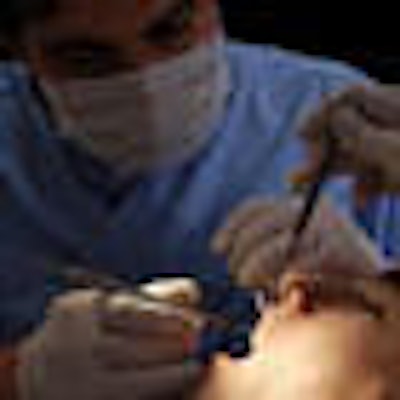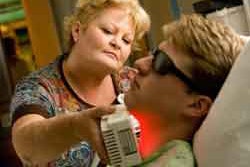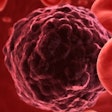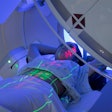
Dentists can play a key role in helping cancer patients endure the oral side effects of cancer treatments, according to Sol Silverman, D.D.S., M.A., professor of oral medicine at the University of California, San Francisco (UCSF) School of Dentistry, at the recent California Dental Association (CDA) fall seminar. The goal is to make them as comfortable as possible, he emphasized in his session, "Oral Complications of Cancer Treatments and Dental Professionals."
Most patients are seen with advanced-stage disease, requiring aggressive treatments of surgery, radiation, and chemotherapy, noted Dr. Silverman. The most recent national data show that 60% to 70% of oral and pharyngeal cancer patients are treated with radiation or radiation in combination with chemotherapy, he added. This increases adverse side effects in oral/dental problems, mandating dental professional care before, during, and after treatment.
"The rate is increasing because we are not making any headway in the early detection of oral cancer, and the only way to improve the survival rates is through more aggressive treatment," he added. "That means more adverse side effects [and] more morbidity."
Radiation side effects
Radiation side effects can range from skin pigmentation, ulceration, mucositis, weight loss, alteration in taste, xerostomia, caries, candidiasis, and osteonecrosis.
It is very important for patients to have optimal hygiene before radiation so the chances of complications during and after radiation therapy are reduced, Dr. Silverman said. During radiation therapy, the tumor receives the maximum amount of radiation and healthy tissue is spared as much as possible. Radiation therapists can tell dentists which teeth will be outside the fields of radiation as they define margins before treatment. This information allows dentists to plan accordingly in terms of periodontal disease control, caries control, and extractions. For example, a tooth that is not badly damaged can be saved if it is outside the fields of radiation.
Oral mucositis is one of the most painful side effects of radiation therapy. With radiation therapy, the main area of concern is the stratified squamous epithelium, but with chemotherapy, the whole mucosa becomes involved. Even though pharmaceutical companies are directing large amounts of money into developing mouth rinses, pills, and injections to treat oral mucositis, no single agent exists for its cure or prevention.
Radiation patients can also suffer from xerostomia, and because every patient has a different salivary flow, it is usually better to go by patient complaint as compared to a baseline standard. Dr. Silverman recommends products that contain CCP-ACP (MI Paste), Biotene, and other over-the-counter products, although he points out that these products are still under scrutiny. Another option is saliva stimulants such as Salagen, Evoxac, and bethanechol. He also recommends water sips and sugarless gum and candy.
"If one technique does not work, don't give up, as another might work in terms of improving saliva or not having a side effect," he said.
Patients undergoing radiation also experience alteration in taste, but it is usually transient, he noted. He recommends trying to keep the patient's mouth moist or giving a higher dose of zinc, although he emphasized that neither of these techniques works definitively.
For patients who lose their appetite and experience severe weight loss, Dr. Silverman recommends megestrol (40 mg four times a day), an appetite enhancer.
Osteonecrosis
Osteoradionecrosis is a lifelong risk for patients who undergo radiation therapy. It becomes difficult to perform invasive procedures on these patients because a bone that has previously been exposed to radiation might not heal. It is better to extract teeth before a patient undergoes radiation rather than afterward, Dr. Silverman said.
Talk to patients and create a plan with which they feel comfortable. Tell them that there is a higher risk of osteonecrosis if you remove a tooth that been irradiated so it is best to remove it beforehand, explained Dr. Silverman. But, he warns, only remove teeth that are at high risk because of periodontal disease or advanced caries.
"In planning for patients who are about to undergo radiation, extract teeth that are high risk to avoid complications during treatment and rehabilitation after treatment," he said.
Patients taking bisphosphonates for cancer treatment are also at risk for osteonecrosis. Bisphosphonates bind to bone, and some common bisphosphonate drugs include Aredia, Zometa, Fosamax, and Boniva. The usefulness of bisphosphonates for cancer patients, however, far outweighs the side effects, according to Dr. Silverman.
"If the patient really needs bisphosphonates, give it to them because the risk of necrosis is low," he said.
Because there is no predictive useful management for osteonecrosis, Dr. Silverman recommends conservative treatment. For example, if a bone is becoming irregular and cutting into the tongue, it should be smoothed out. If there is pain, swelling, or pus, he recommends putting a patient on antibiotics. However, arbitrarily putting them on antibiotics has no benefit, he added.
Another possible treatment option is hyperbaric oxygen therapy, although there is no evidence that it actually works, Dr. Silverman said. The aim is to expose patients to oxygen under pressure and stimulate their blood vessels. While it is very expensive and not all insurance companies cover it, it's important to inform patients about all of their treatment options, he said.
Chemotherapy and surgical side effects
In addition to the side effects of radiation, chemotherapy has the added side effects of increased nausea, reactivation of the herpes virus, accelerated fungus growth, and infections as a result of leukopenia.
It is very important for these patients to have immaculate hygiene because chemotherapy will knock out their immune systems, Dr. Silverman noted.
The herpes overgrowth can be controlled with systemic medication, he added. Topical medication is less effective in these cases.
Fungal overgrowth can be treated with systemic and oral drugs. However, the diagnosis is troubling as mucositis can be mistaken for fungal overgrowth. If a definitive diagnosis is not possible, try antifungal, antiviral, and antibacterial drugs and one of them may work. Once there is a diagnosis, Dr. Silverman recommends fluconazole to treat fungal overgrowth.
"A lot of these techniques might not work, but keep trying," Dr. Silverman instructed. "Our job is to make the patient as comfortable as possible."
The side effects of surgery for head, neck, and oral cancers include altered appearance and speech and difficulty in swallowing. Patients who have tumors or bones removed, for example, suffer from altered speech, and if they take in either solid or liquid food it can come out the nose.
A simple solution is to fit them with a partial denture with an obturator, Dr. Silverman said. This will allow their speech and swallowing to return to normal.
He also recommends prosthetic obturation for patients who have had parts of the maxilla removed, and implants for patients who have had large portions of the jaw bone removed.
"Maxillofacial prosthodontists can play an important role in the rehabilitation of these patients," Dr. Silverman said.



















